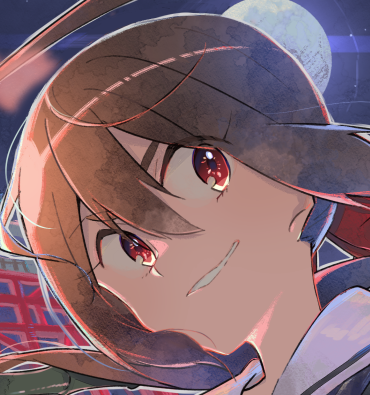“hole-in-one” or more like holinwuns, stress on the first syllable. We would use cookie cutters to get shapes out of the middle too.
- 3 Posts
- 48 Comments

 4·11 days ago
4·11 days ago#8 Beef Lemongrass banh mi style sandwich from a place called Baguette in Corvallis, Oregon, USA. I ate it many times in the short while I stayed there, probably 8-10 years ago. Sometimes I think about going back just to have it again…

 4·13 days ago
4·13 days agoImagus feels like in an alternate universe it could be default browser behavior. When you hover over an image it will expand to full resolution and then you can press buttons to open in new tab, download, zoom in, etc.
Works on pretty much any website and is nice if the website has sized the images too small or if your eyesight is less than great.

 7·17 days ago
7·17 days agoHalf-Life, Half-Life Opposing Force, Half-Life Blue Shift
Yes, it’s very dry where I am.
My thought isn’t that 34° is (or isn’t) a problem, rather that without knowing where it is it doesn’t really mean very much. If OP is in Dubai or northern Mexico or something then 🤷♀️ 34 sounds pretty normal. I just think the post would make more sense with some context.
It’s always 34° somewhere in the world.
We don’t know where OP’s father lives so it’s kinda hard to think of 34° as anything particularly remarkable without any context. It’s 41° where I am right now.
The fact that people so often use the past tense instead of the past participle is perhaps evidence that it doesn’t really matter, descriptively?

 11·1 month ago
11·1 month agoChinese and Japanese would have so many. My favorite is probably 緑 which means green. I also like the simplified Chinese horse: 马. Special shoutout to 凸 meaning convex, 凹 meaning concave, and 凸凹 meaning bumpy (not sure if this is true in Chinese). There’s thousands to choose from so of course there are a lot of other handsome one-character words, but those are the first few I thought of.
A bunch of other people have mentioned Ghibli movies and since I’m in the middle of a binge through every Ghibli movie I think I’ll recommend one that I hadn’t seen before a few days ago: Only Yesterday or Omoide Poroporo.
It’s Isao Takahata, not Miyazaki, but it’s easily my favorite Ghibli movie and one of my favorite movies of all time. It feels so real and relatable, the whole movie is essentially a really slow-paced series of flashbacks to the main character’s 10-year-old self and every detail is so well-thought-out and interesting.
Very worth watching, although I’ll mention as a disclaimer that all the friends I was watching it with thought it was super pointless and boring.
Love & Pop the Hideaki Anno movie? I don’t think I’ve ever seen anybody else mention it online before
I’m surprised only a handful of people have mentioned Ghibli movies. For me it was Nausicaa of the Valley of the Wind, it’s probably one of the first movies I remember watching in general. Still my favorite Ghibli movie and I must have watched it dozens of times as a kid.
The source material for it is a manga by Miyazaki himself and it’s much longer and deeper (the movie only covers about 1.5 out of 7 volumes, and changes a lot of details). Highly recommended.

 7·2 months ago
7·2 months agoEverywhere? or in what country/place?

 81·2 months ago
81·2 months agoI’m with you on the Gamecube controls, tank controls are awkward but Wii pointing is more awkward. Although the best control scheme I used was a Steam controller on Dolphin (for the Wii version).

 3·2 months ago
3·2 months agoI love archaic inconsistent Japanese. 今日 (obviously きょう) used to be pronounced the same way but spelled… けふ. There’s a Wikipedia page on historical kana orthography and the example the use on the page’s main image is やめましょう spelled as ヤメマセウ. The old kana usage sticks around in pronunciation of particle は and へ. There also used to be verbs ending in ず that turned into じる verbs like 感じる. Here’s a post on Japanese stack exchange where somebody explains verbs that end with ず, づ, ふ, and ぷ.
Honestly I’m glad I don’t have to learn historical inconsistent spellings, but part of me thinks that it’s really cool and wishes it was still around.

 3·2 months ago
3·2 months agoI did a search on GSM Arena and if you lower the battery capacity to 5000 then there’s a single result. If you change some of the other spec requirements there’s some other stuff available but nothing that matches what you want one-to-one.

 1·2 months ago
1·2 months agoChinese characters were also used in Vietnamese and Korean until surprisingly recently.

 23·3 months ago
23·3 months agoSource Film Maker, 3D animation software based on source engine which was used for games like Portal and Team Fortress 2.
Yeah if anything I’d expect a coal mining museum to be way more aware of the impact of their energy source and be more likely to switch to solar.



“It’s against my religion to use preferred pronouns”
Also that religion: hi my pronouns are He/Him CAPITALIZED please. Please capitalize them when you use them.
🤷♀️